Voices of the Love Lives On Act of 2023
Author: TAPS
Why We Advocate
TAPS is dedicated to supporting all military and veteran survivors, and part of this commitment is advocating for program and service improvements that can directly impact life after loss. We work closely with elected officials; the Departments of Defense, Veterans Affairs, Education, Labor, and Health and Human Services; and state and local governments to make sure survivor concerns are voiced and leaders are informed.
One of TAPS’ top legislative priorities in 2023 is the passage of a comprehensive remarriage bill, the Love Lives On Act of 2023 (S. 1266, H.R. 3651). The bill allows surviving spouses to retain their Survivor Benefit Plan (SBP) and Dependency and Indemnity Compensation (DIC) upon remarriage at any age. This is contrary to current law which penalizes surviving spouses who choose to remarry prior to the age of 55 by discontinuing significant financial benefits and access to critical dependent information.
The following are testimonials provided by survivors who shared with us the why behind their advocacy of this bill. You can join the effort and advocate for the Love Lives On Act by contacting your lawmakers and asking them to cosponsor this important legislation, and you can contact policy@taps.org if you have questions about how to take action.
Kaanan Fugler
My first husband, SSG Matthew Mackey of the U.S. Army National Guard, on his last deployment, wrote our children each a “what if” letter. In those letters, he told my children that he wanted me to find someone to pick up our broken pieces who would love them when he was unable. I remarried in 2017, giving up my benefits.
I had more barriers to overcome than the loss of my benefits, despite utilizing my education benefits before I remarried. My education and lack of job experience due to deployments and moving put me at a disadvantage to my civilian counterparts.
In 2018, a few months after I remarried, my 9-year-old daughter was in the ICU in diabetic ketoacidosis. As her only living parent, I needed to sign a HIPPA form as her “guardian” for Tricare to even speak to me about her care.
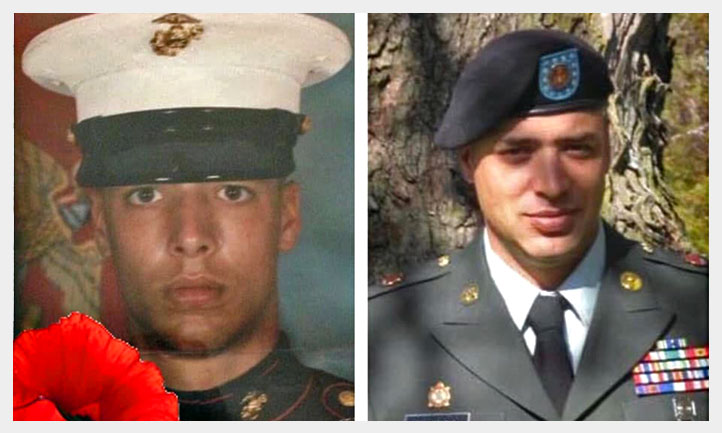
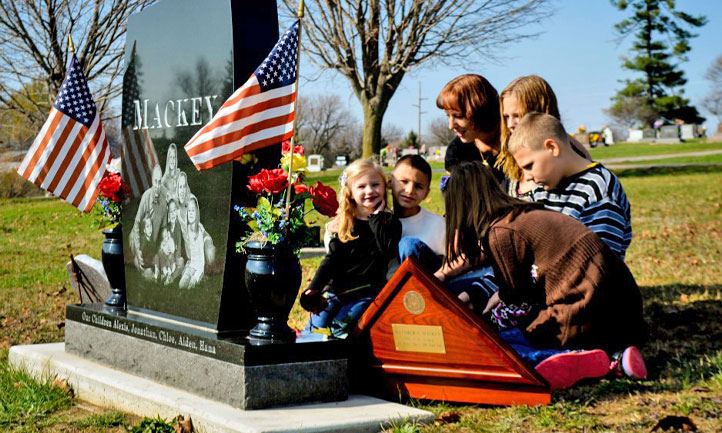
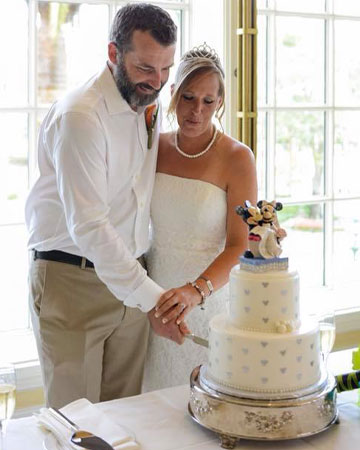

Congress fixed the “Widow Tax,” but my children were left in a loophole. They have to pay Survivor Benefit Program (SBP) taxes at a higher tax rate, as I am unable to take back the tax burden that unmarried widows now are able to take on themselves. I am also unable to access their SBP, their eBenefit portal, or even their Tricare portal; as congressional law says, I’m not privileged to my own children's information through DoD.
Remarriage doesn’t take away from the 12 years I spent sacrificing my own employment while Matt served or the 12 years after his death that were spent raising our broken family. A piece of paper will never change that I’m Matt’s widow; it just also means I am someone else’s spouse. Based on current law, I would have had to wait over 20 years to remarry — almost half of my life. That is what members of Congress currently believe is the appropriate amount of time I should be alone to keep my earned benefits. Passing this piece of legislation would facilitate access to my children’s information, enable me to take on their tax burden at a lower rate, and remove a tremendous income barrier created by my husband’s service and death that was subsequently taken away upon remarriage.
Kimberly Hughes
As a native of Chicago, mother of two, and widow of U.S. Army MAJ Gary Hughes, who passed away in the prime of his life, I found myself battling a whirlpool of struggles: losing a business, filing for bankruptcy, and proving Gary was a victim of toxic air exposure from the burn pits in Afghanistan. I wanted to make a difference.
I moved south and fought for service-connected benefits. I began traveling, sharing my story, and empowering others. Along the way, I helped make history in 2022 when the PACT Act was signed into law!
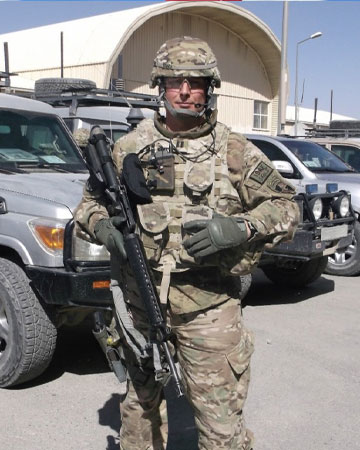
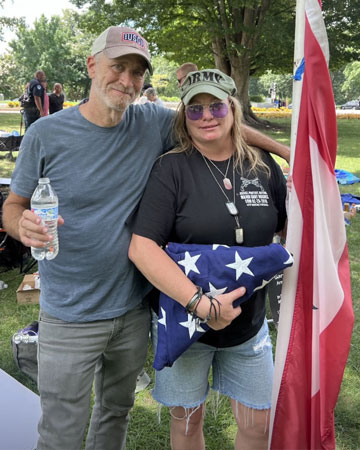
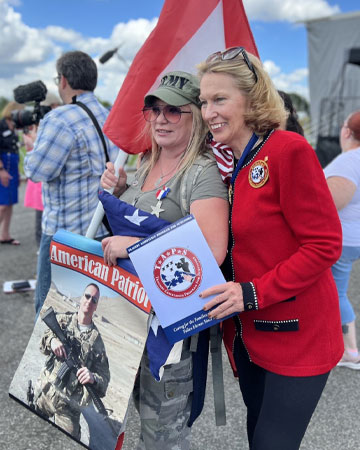
Even though cancer stole my husband's life, I became resilient — not only for my own family but ultimately for many others.
I continue to advocate for veterans, their families, and survivors. Proudly, I continue to advocate and share information that will spare others from the painful experiences that my family and I had to suffer.
Nancy Mullen
I’m embarrassed to say I never really knew much about military survivor benefits, other than the SGLI (life insurance), when I was a military spouse. Perhaps this was partly out of ignorance, but mostly out of a need to survive. After all, how could you make it through the numerous deployments if you thought about the what-if part of being a military spouse? I say “partly out of ignorance,” though because I truly believed — as do most Americans — that we as a country take care of the families of those who made the ultimate sacrifice.
I lost my husband, U.S. Army WO1 Sean Mullen, in 2013. Although I was in a fog when I was briefed on my benefits, my biggest takeaway was how appalled I was at the lack of monetary and educational benefits provided by our government. At the time, my combined monthly monetary benefits were only 26 percent of his monthly income — 26 percent! I am a college-educated CPA, and I had a career before I met my husband, but I was well aware of the sacrifices we made together and the financial impact of losing him. But what about those who were not in my position? I had to do something, and fortunately, I was — and still am — in the position to do so.

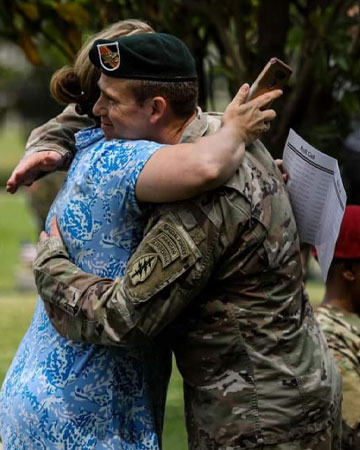
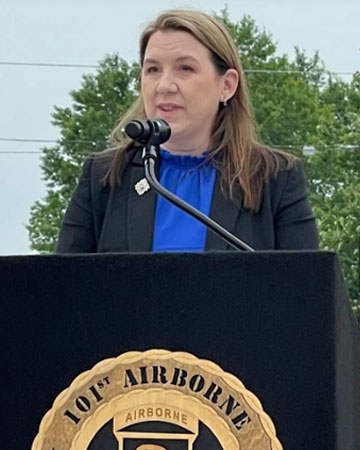
Those who can, should. We should strive to make it better for those who come after us. While the benefits have improved tremendously since then, we still have a long way to go. This is why I continue to advocate.
Michelle Fitz-Henry
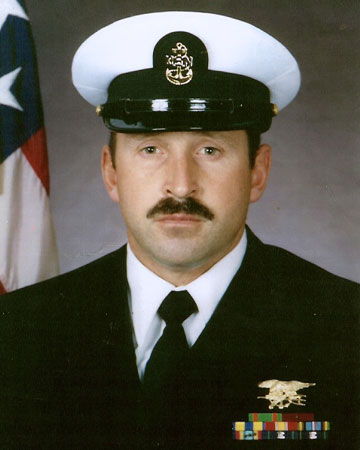
My husband, U.S. Navy SCPO Ted Fitz-Henry, died in 2004. He had so much life left to live, so much to offer, and so many people who loved him. I miss him every day.
The military survivor benefits made everything worse. I was a career firefighter and paramedic when my husband died. I know what our survivor benefits are for firefighters who die in the line of duty. The difference between the survivor benefits I could have left to my husband if I died and the military survivor benefits I received was drastic and disappointing. I received just a small fraction of what his monetary contributions were to our household.
When Ted died, we had just bought a home. He didn’t even get to live in it for a year. The Survivor Benefit Plan (SBP) and Dependency and Indemnity Compensation (DIC) benefits combined didn’t even cover the mortgage on a modest 1,100-square-foot, two-bedroom home in the Chicago suburbs, much less anything else.
I am a veteran myself. I was angry — and actually embarrassed — to realize how military surviving families were made to get by on “survivor benefits.” Obviously, no one was advocating all those years on our behalf. We had to do it ourselves. We did, and we have had some successes, but there is much more to be done. Our most vulnerable elderly surviving spouses are often living on DIC allowance alone. Let me give you an idea of what that looks like. When my husband died my DIC was 14 percent of his income. I don’t know how anyone is expected to get by on that. Our work is not done.
Contact Your Lawmaker
Join the effort and advocate for the Love Lives On Act by contacting your lawmakers and asking them to cosponsor this important legislation. Contact policy@taps.org if you have questions about how to take action.
Photos courtesy of Kaanan Fugler, Kimberly Hughes, Nancy Mullen and Michelle Fitz-Henry
